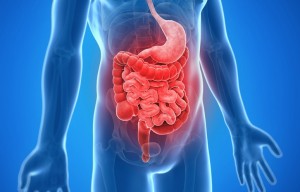The Symptoms of Colorectal Cancer
 During its earliest stages, colorectal (cancer of the colon or rectum) cancer will usually not produce any noticeable symptoms. However, symptoms may manifest as the disease progresses to a more advanced stage. Unfortunately, this means that many cases of colon cancer are difficult to treat, but clinical trials on colorectal cancer could change this.
During its earliest stages, colorectal (cancer of the colon or rectum) cancer will usually not produce any noticeable symptoms. However, symptoms may manifest as the disease progresses to a more advanced stage. Unfortunately, this means that many cases of colon cancer are difficult to treat, but clinical trials on colorectal cancer could change this.
The most common signs and symptoms that are associated with colorectal cancer include:
- Blood in the stool or rectal bleeding
- Alteration in normal bowel habits, including a different consistency to the stool or periods or diarrhea and constipation
- Unexplained weakness or fatigue
- Abdominal pain, cramping, or bloating that does not subside
- Abnormal loss of weight
- Feeling like the bowel is not emptied completely following a movement
The Location of the Colorectal Cancer
A lot of people who are diagnosed with colon cancer did not experience any symptoms during the early stages of the disease. The symptoms that are associated with colorectal cancer can vary from case to case based on the size of the cancer and where it is located in their large intestine:
- The first and second parts of the colon are known as the cecum and ascending colon, which are located on the right side of the abdomen. Cancer that develops in this area can produce rectal bleeding and other symptoms of anemia (like weakness and fatigue). The blood present in the stool may not be noticeable, and in other cases there are simply no symptoms.
- The third part of the colon (the transverse colon) runs across the body from right to left. If cancer develops in this area, it could cause some intense abdominal cramping.
- Then there is the descending colon and the sigmoid colon (resembles an S) which are located on the left side of the abdomen and connect with the rectum. Colorectal cancer in these parts could produce stool that is narrow, and some bright red blood can show up following a bowel movement. Though, it is not uncommon for the blood to be mistaken as coming from a hemorrhoid.
When to Seek Medical Attention
If you experience any of these symptoms, such as abnormal changes in bowel habits or rectal bleeding, then you should certainly schedule an appointment with your physician.
Your doctor will be able to tell you when you should begin screening for this deadly disease. The current national guidelines suggest that routine colon screenings should begin after age 50. However, this may be different in your case based on a number of possible risk factors, such as having family members who had colorectal cancer.